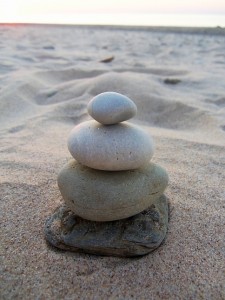
This post is about what it means to live ethically. For example, what constitutes stealing? In one of the yamas of yoga –asteya, (similar to the Ten Commandments in the Christian tradition) there is the admonition “You shall not steal.” Is this only referring to taking something outright? That is a literal and shallow interpretation. What about stealing someone’s time, attention or ideas?
As North Americans we may prefer the shallow interpretation because it’s easier and suits our lifestyle. But we can go deeper. Stealing means having more than one’s fair share, when others have nothing.
Who decides what is my “fair share” or what is too much for me to have? Those living on less than $2 a day – two thirds of the human family – get to decide.
The gifts of our planet are for the use of the entire human family (and other species too). Morally and ethically, having more than we need when others have nothing is stealing. If society values human life, then based on that value, we provide social safety nets that meet basic human needs when necessary. We should speak about our refusal to meet other human beings’ basic needs truthfully.
The truth is that much of what I have has been stolen, then, from others who need it. This bothers me very much. I hope it bothers you too.
Again, language shapes how we understand. For example, we say “under privileged” but then we refuse (or are loath) to say “over privileged” because that would imply having what we did not earn or receive fairly.
And of course we like to refer to our stolen goods as “blessings” although they aren’t. Some of us are simply benefiting from an economy (set up by human beings – not by God) that privileges us over others.
We need to speak about reality as it really is so we can understand and think clearly. Then we can make choices that will bring true integrity and inner peace.
This is a very profound point.